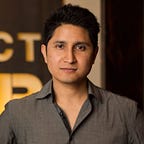This is an excerpt from my latest book Dear Hannah: 70 Methods I Used and Abused to Change Who I Am.
If I Can Grind WoW, Why Can’t I Grind This Job?
Date: April 17, 1999
Age: 16
Location: La Jolla, CA
Subject: Live Like You’re In a Video Game
Hi Hannah,
Man, it’s been tough trying to work while cramming for the SATs and finals. I’m alone at go2’s office on a Saturday afternoon, working overtime to finish a project. Instead of getting anything done, though, I find myself sitting still, frozen in time, staring at light beams coming through pinholes in the blinds, noticing how they reflect off the dust. You suggested before that I should just put off my work or do something else when I get stuck like that, but isn’t that just procrastination?
I started having thoughts of despair. I told myself, Look at the other students in your AP classes. They work way harder than you. They have violin lessons and Kiwanis Club meetings rounding out every free hour of their schedule, whereas you spend your spare time playing Quake. They show up to morning classes with groggy eyes because they have been up all night studying, whereas you typically get six-to-eight hours of sleep a night. I can’t see any reason why you can’t do a little bit of overtime.
If only there was some way that I could just do the right thing and work. I know what I should be doing, so why can’t I just do it? I have control over my body, right? If you tell yourself to move your arm, it moves. You don’t have to think about contracting the muscles in your biceps. I should act like a puppet master, or rather like a character in a video game.
I then thought, That’s it! In video games, the character does exactly what you tell it to do. You press forward, it moves forward. You press jump, it jumps. You don’t have to give it a pep talk to do anything. It obeys your every command. So what if I stepped away from my body and imagined I was holding a video game controller. On it there could be a joystick to control movement, plus two buttons: work and rest. If I press the work button, then the character (i.e., me) goes to work. If I press the rest button, I rest. So if I move the joystick and press the buttons in the right combination, I should maneuver myself to eventually win the game, right
And so I pressed the work button, and like clockwork, my body went to my email. I replied to all the questions that Calvin had sent me. Then I opened up Flash, and laid down some basic shapes and animations to explain go2’s newest product. Initially I hesitated, and was about to browse news sites again, but the work button was meant to last for an hour. And so I just kept on working, quieting my emotions, and watching the clock, not breaking a sweat until that clock finally ran out.
And just like that, I broke through my impasse. Any other person would have given up and gone home. Hell, most people my age wouldn’t meddle with a start-up like this in the first place. But if I have my sights set on Stanford, I want to maximize this experience, which is going to look great on my application. And if I thrive here, maybe I’ll get rich in the process.
Which makes me wonder, do other people live life like they’re on remote control? Or do most people just stop working when their motivation runs out? If I can work in conditions where others cannot, does that mean I’ve found a new secret weapon?
- Phil
This method lasted all of two days. I wasn’t actually curing procrastination. Instead, I was simply forcing myself to work when I was beyond tired and exhausted.
This is an excerpt from my latest book Dear Hannah: 70 Methods I Used and Abused to Change Who I Am.
For Philip’s 14th birthday, Hannah gave him Dale Carnegie’s How to Win Friends and Influence People, which kicked off a life-long obsession with self-improvement. Over 16 years, Philip wrote 82 letters to Hannah describing every book, pop psych article, and method that he used — or abused. Dear Hannah is either a cautionary tale about self-improvement, or it is a filter for the 10% of self-help that may actually change your life.
PHILIP DHINGRA is a President’s Scholar from Stanford University, where he received his B.A. in Mathematical and Computational Sciences. In addition to authoring books on life change, he develops best-selling iOS apps including Nebulous Notes and The Creative Whack Pack (a collaboration with creativity pioneer Roger von Oech). Philip divides his time between Austin, Texas, and San Francisco, California.
